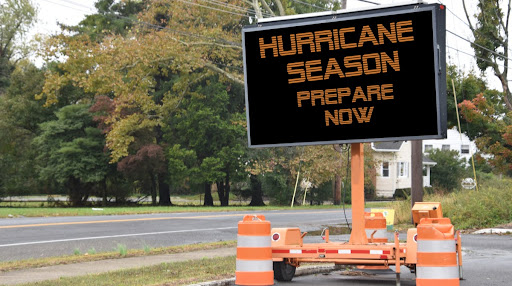
Unplanned downtime can be a facility manager’s worst nightmare. When the lights go off, it’s too late to prepare. Don’t get caught in the dark this hurricane season. Look at your facility’s power contingency and hurricane plans to ensure that your facility will be prepared if a storm hits.
How Dangerous Is a Hurricane?
One of the biggest dangers regarding hurricanes is the fact that many people and facilities underestimate the damage that such storms are capable of. Hurricanes, by definition, have wind speeds greater than 74 miles per hour. Strong hurricanes also push large amounts of water onto the shore with tidal surges, and can spin off tornadoes in the outer bands.
When looking at the cone of a hurricane’s track, many people focus only on the line of the most likely path. The problem is, that cone only represents where the hurricane will actually go two-thirds of the time. Focusing on the line instead of the cone causes many facilities to not prepare until it’s too late.
How Should Your Facility Prepare for a Hurricane?
When trying to determine how to prepare your facility for power contingencies during hurricane season, the first question to ask is what level your facility needs to operate at during a hurricane. Facilities without essential operations are often better off preparing the facility and shutting down shop in preparation for a hurricane landing. Prepare the facility for flooding by moving any crucial documents, electronics, and computers off of the first floor. Back up all computer systems to a remote location to ensure files stay safe.
If the facility will operate as long as power is operational, backup generators must be connected to emergency lighting and other building services that will need to be operational until the facility can be safely shut down and evacuated. Components on these circuits are called “emergency loads.” Carefully consider what loads will be placed on these circuits. Emergency lighting and ventilation systems may be required.
At the other end of the spectrum are the facilities that must continue to operate at capacity even with a loss of power. If your facility falls into this category, a key part of your facility’s hurricane preparedness plan should include the facility’s uninterruptible power supply (UPS). Even with a backup generator, equipment like phones, computers, and servers may get kicked offline while the system switches from utility power to backup power. A UPS acts as the bridge to keep everything powered while the system switches sources. Properly sizing your facility’s UPS and backup generators are key parts of maintaining uptime during power outages.
Related: Power Supply Generators and More
What Equipment Does My Facility Need?
When sizing the UPS and backup generator for your facility, the most important information is the size of the load that will be on the system during a power failure. Getting this correct is essential to sizing the rest of the system correctly. An electrical contractor (or your power company) can often give you a good idea of your historical power consumption. Keep in mind, deciding to keep things like the HVAC system running during a power outage will have a big impact on the size of the backup power system your facility will need.
One budget-conscious option is renting backup generators as needed for your facility. In the case of hurricanes, your facility will typically have some time to finalize preparations. These preparations can include renting and hooking up a generator to provide backup power as needed. This option minimizes the work required by the maintenance staff to keep the generator operational year-round. The downside is that power losses throughout the year from non-hurricane sources will not have a contingency plan.
Determining your facility’s power contingency plan can sometimes feel like a daunting task. The experts at Tate are experienced with uninterruptible power systems and power contingency plans. Contact them today and let them help you find the solution that’s best for your facility.
